Celebrations in Tower Hamlets after PM's ousting
Hundreds gathered to sing and dance to traditional music
- Published
London's Bangladeshi community have been celebrating following the ousting of Bangladesh's former Prime Minister Sheikh Hasina.
Ms Hasina fled the country following weeks of deadly student-led protests against her regime which she led with an iron fist.
"We must never forget the people that gave their lives trying to get this movement off the ground," said Canning Town resident and civil servant Shumena Akhter.
Events took place across east London with hundreds gathering in Altab Ali park and outside East London Mosque in Whitechapel.
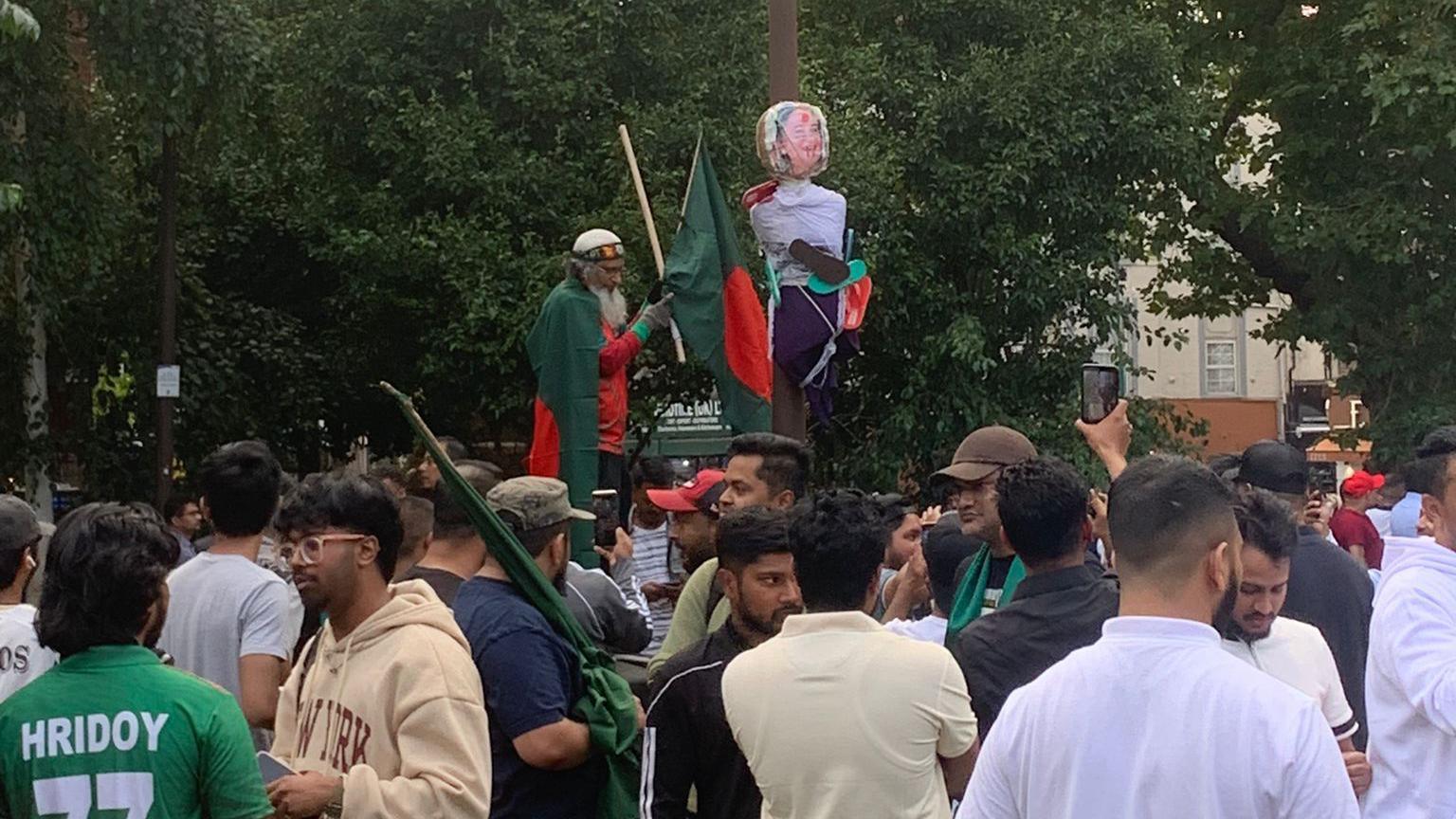
Hundreds gathered in Altab Ali park in Whitechapel on Monday
East London, specifically Tower Hamlets, is the home of Britain's largest Bangladeshi community. According to the 2021 census, 34.7% of the population identifies as Bangladeshi or British Bangladeshi.
In Altab Ali park on Monday people gathered to sing, dance and wave flags to mark Ms Hasina's fall from power.
An effigy of the former Prime Minister, constructed from a helium balloon and the torso of a clothes mannequin, was attached to a telegraph pole in the middle of the park. In one video from the celebrations a man can be seen hitting the effigy with his shoe.
At 76 years old Sheikh Hasina was the longest serving Prime Minster of Bangladesh
Weeks of civil disobedience in Bangladesh toppled Ms Hasina's 15 years in power.
Protests began in early July when university students took to the streets in peaceful demonstrations against civil service job quotas. The protests soon transformed into a wider anti-government movement.
As the movement expanded so too did the brutality of the police and government response, with reports of more than 300 people killed in the unrest.
Despite Ms Hasina reportedly cutting off internet access in parts of the country, the media blackout didn't stop images and videos of the situation appearing on social media - alerting the international community to the escalating bloodshed.

"It was a moment of 'she's [Sheikh Hasina] finally gone'" said Ms Akhter
Shumena Akhter, 27, said she saw the gatherings on social media and that it was great to see everyone come together, especially so many young people.
"I think it's beautiful that people are now celebrating Bangladesh in a way that we should have always" she said.
"But it's a moment of fleeting joy because there is so much that has to change.
"The voices of students need to be included in the changes within Bangladesh's government going forward.
"Young people want to be involved."
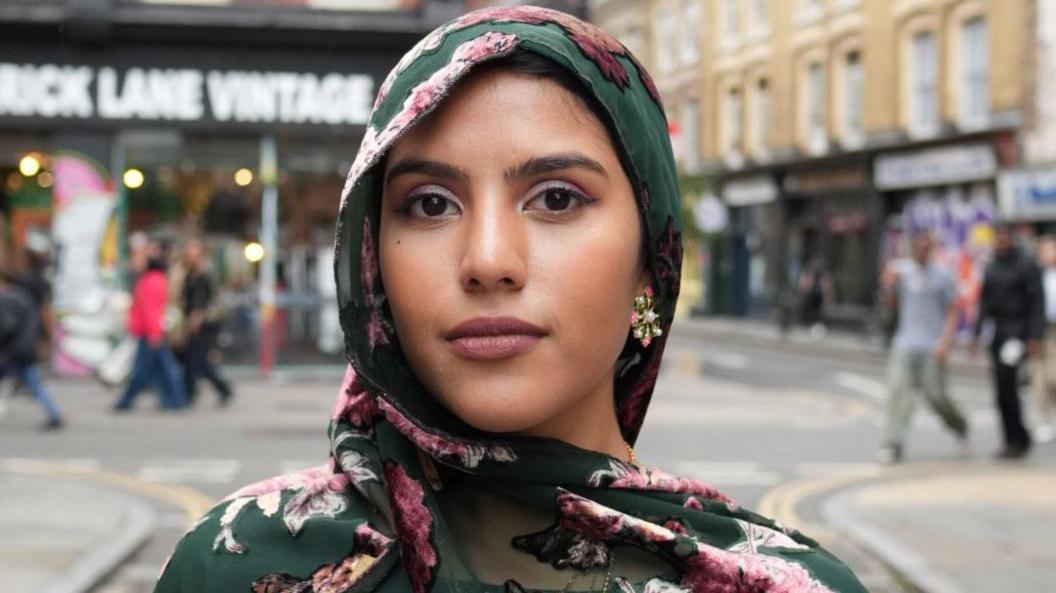
"We’re learning about what’s happening in real time and we’re also trying to play catch up" said Ms Zaman.
Speaking about the reaction of Bangladesh's diaspora community to the former Prime Minister fleeing the country, Ms Akhter said: "She held onto her position for so long partly because of her legacy as the daughter of the founder of Bangladesh but she hasn't done justice to that.
"As diaspora there is an emotional connection to Bangladesh but we're not always informed of the situation."
"The main thing anyone within diaspora can do is educate themselves and gain greater awareness."
Ms Akhter said she was shocked when she went to visit Bangladesh two years ago to see that her cousins had been unable to find work.
She said: "They have masters degrees and have completed higher education but there are no opportunities for them despite them having worked so hard."
The murder that mobilised the East End
- Published4 May 2016
'We're here to ensure no-one ever pushes us around'
- Published8 August 2024
Exhibition explores East End lives through the ages
- Published23 July 2024
Nabeela Zaman, 27, is the managing director of the British Bangla Welfare Trust, an independent charity in Stratford.
She said her charities works with volunteers - mostly students - in Bangladesh who were directly impacted by and involved in the unrest.
"They're safe now", she said.
"But it was a fearful time, it was difficult to find out what was even happening on the ground because of internet shutdowns.
"I am hopeful about the future, what the students managed to achieve in a short amount of time is nothing short of revolutionary," she added.
Ms Zaman was also at Altab Ali park.
"It was really joyful, everyone was singing and there were a lot of people.
"It was nice to be in an atmosphere where everyone was happy after seeing so much bloodshed," she said.
"After everything that's happened it was really nice to see everyone happy and coming together for a celebration."
Speaking about why people chose to gather there she said: "For British Bangladeshis it's a historical landmark... it was bittersweet to be holding the celebration there."
The park was renamed to honour Bangladeshi textile worker Altab Ali after he was murdered by racists there in 1978.
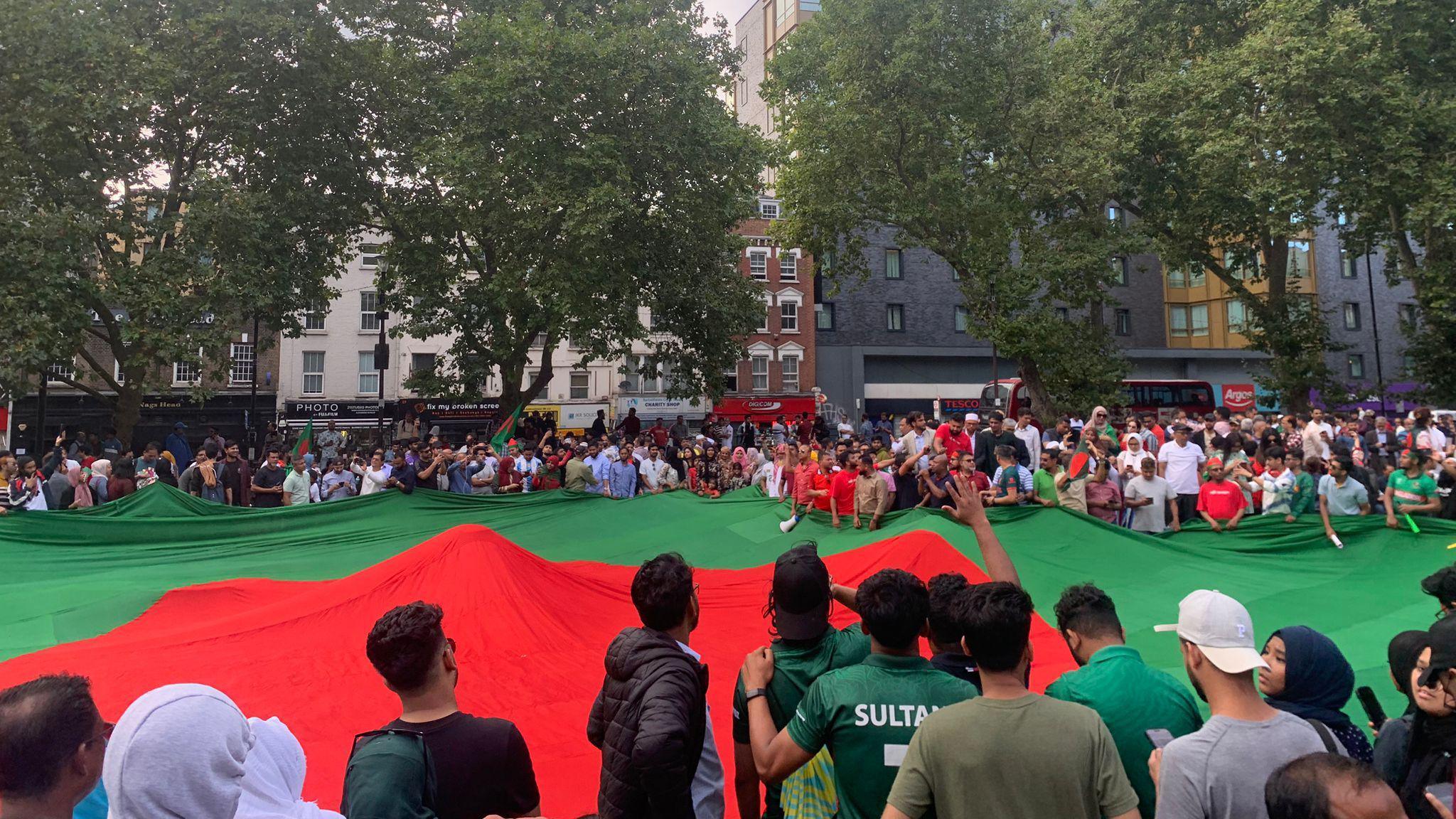
A giant flag of Bangladesh was unfolded in the celebrations
In a statement, Mohammad Nuruzzaman from Newham Muslim Forum said the speed with which events unfolded in Bangladesh was unprecedented.
"None of us thought the situation could change so quickly," he said.
"We've been supporting members of our communities worried about their relatives, which has been especially difficult with the internet blackouts. Sometimes we've not heard from close relatives for days.
"Since Monday, there has been an outpouring of joy and euphoria. People travelled from all over the country to come to Altab Ali Park in Whitechapel and Green Street, Newham to celebrate the overthrowing of a regime who had killed hundreds and 'disappeared' many more."
He added: "Members of our communities whose relatives have gone through forced disappearances for years are seeing them released from years of brutal captivity."
Listen to the best of BBC Radio London on Sounds and follow BBC London on Facebook, external, X, external and Instagram, external. Send your story ideas to hello.bbclondon@bbc.co.uk, external
Related topics
Read more here
- Published7 days ago
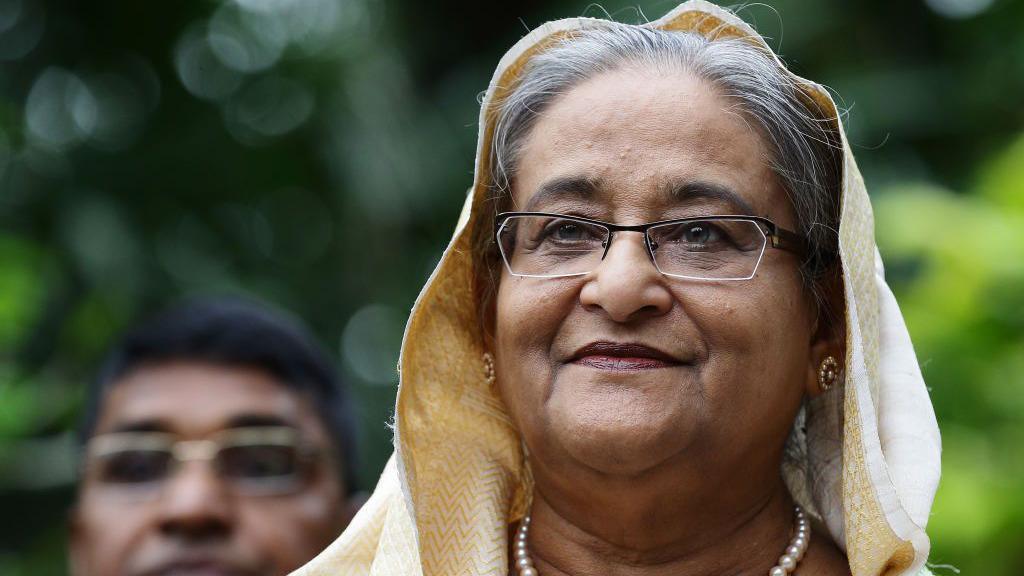
- Published5 August 2024
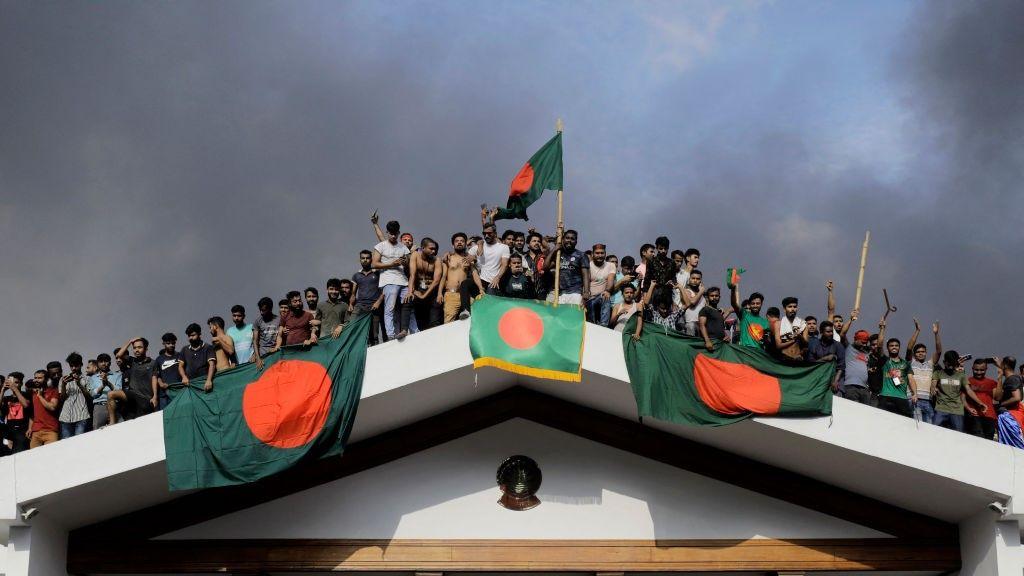
- Published6 August 2024